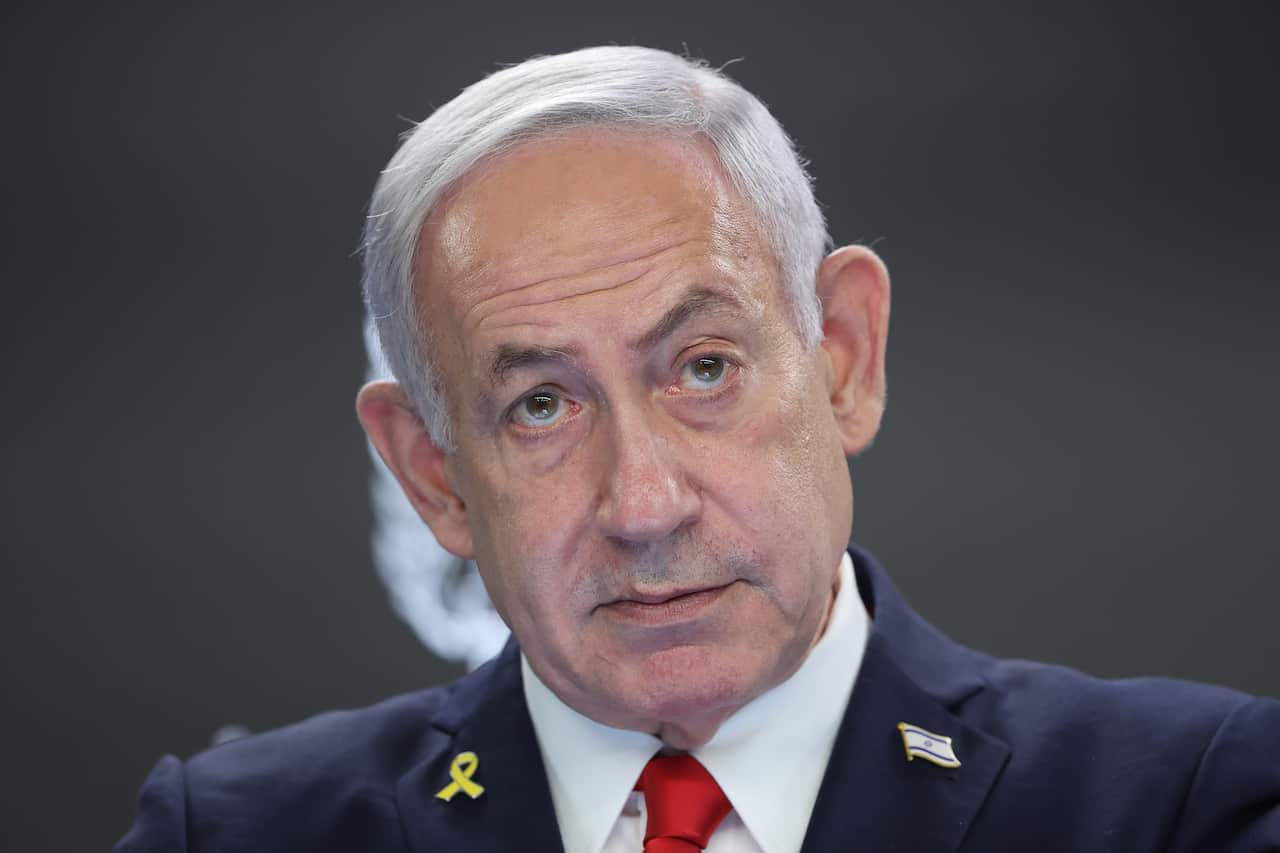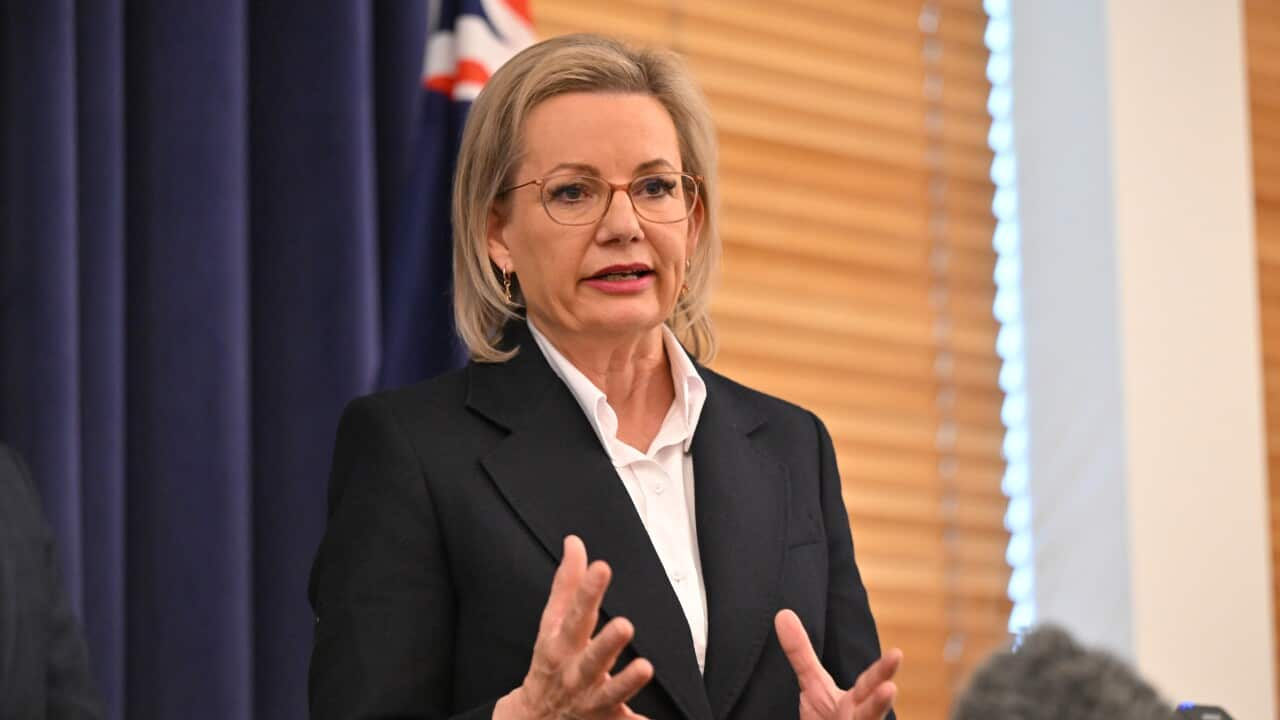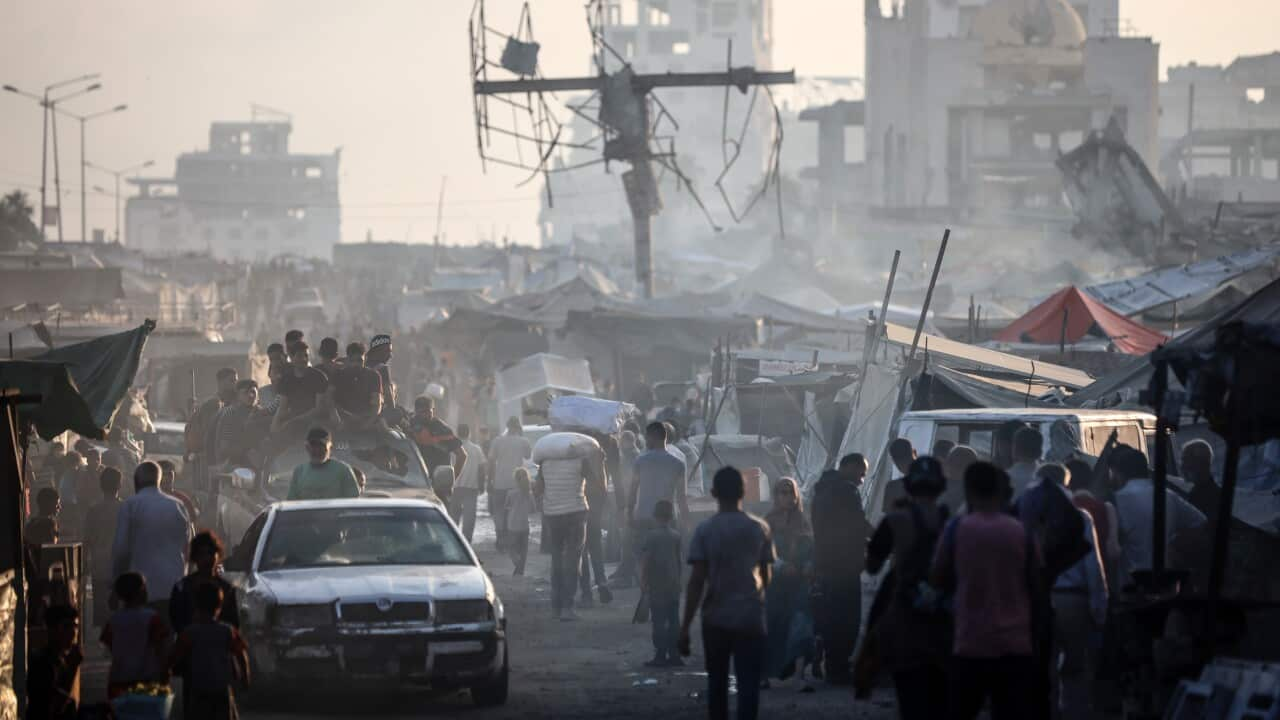Key Points
- Albanese said Palestinian statehood decision was partially influenced by Israel's decision to occupy Gaza City.
- Opposition leader Sussan Ley said the move would be revoked by a Coalition government.
- Albanese also said Israeli Prime Minister Benjamin Netanyahu was in "denial" about the suffering of civilians in Gaza.
The federal Opposition has vowed to reverse the Albanese government's decision to recognise a Palestinian state if it wins government at the next election.
On Monday, Anthony Albanese confirmed Australia would join the United Kingdom, France and Canada in recognising a Palestinian state at a United Nations General Assembly meeting in New York in September, following mounting pressure to take action to support the suffering people of Gaza.
On Tuesday, Opposition leader Sussan Ley said the move would be revoked by a Coalition government.
"The Coalition Shadow Cabinet resolved today to oppose the government's decision to unilaterally recognise a Palestinian state outside of these processes," she said in a joint statement with Opposition foreign affairs spokesperson Michaela Cash.
"The Shadow Cabinet also resolved that recognition would be revoked by a Coalition government.
"The Coalition would have never made this call, and we do not agree with it. A Coalition government would only recognise a Palestinian state at the conclusion of a proper peace process."
She earlier said the decision "does not deliver a two-state solution, it does not improve the flow of aid, it doesn't support the release of the hostages and it certainly doesn't put an end to the terrorist group Hamas".
What pushed Anthony Albanese towards recognising Palestinian statehood?
Israel's plan to take over Gaza City helped spur Australia's decision to recognise a Palestinian state, the prime minister has revealed.
Practical steps for recognition will be tied to commitments made by the Palestinian Authority, which exercises partial civil control in the West Bank.
The commitments include assurances that Hamas — the Palestinian political and militant group which de facto governs Gaza — will play no role in any future government.
While the federal government had previously insisted the recognition of a Palestinian state was a matter of "when, not if", the announcement was a shift from those comments made less than two weeks before.
This was because Australia's decision was partially fuelled by the Israeli government's decision on Friday to approve a plan to seize Gaza City, Albanese said.
"We make assessments based upon the totality of what is before us," Albanese told reporters in Melbourne on Tuesday.
"The other thing that is occurring is ... the decision by the Israeli government to double down on its military solution ... with the decision that they've made to go in and to occupy Gaza City.
"We have seen too many innocent lives being lost.
"The international community is saying that we need to stop the cycle of violence."
Netanyahu in 'denial': Albanese
Albanese also said on Tuesday the Israeli government's reluctance to listen to its allies contributed to Australia's decision to recognise a Palestinian state.
Appearing on ABC News Breakfast on Tuesday morning, Albanese said he had spoken with Israeli Prime Minister Benjamin Netanyahu.

Anthony Albanese said Israeli Prime Minister Benjamin Netanyahu was in "denial" about the humanitarian cost of the war. Credit: EPA/Abir Sultan
In late July, Albanese stressed he would not be "driven by a time frame" on the recognition issue.
Less than a week later, Foreign Minister Penny Wong revealed Australia was coordinating with other countries on the issue amid concerns "there will be no Palestine left to recognise".
The public mood in Australia has shifted sharply as Israel plans to take military control of Gaza, amid increasing reports of hunger and malnutrition amongst its people.
Israel has denied the Gaza population is suffering or dying from starvation, even though it has throttled the flow of aid to Gaza for months, international human rights groups have said.
Tens of thousands of demonstrators marched across Sydney's Harbour Bridge earlier this month, protesting against Israel's actions in Gaza.
More than 140 of the 193 UN member states already recognise the Palestinian state.
French President Emmanuel Macron praised Australia's decision, welcoming Albanese "joining the momentum".
"This reflects our commitment to the two-state solution and to the need to collectively rebuild a political pathway, without which there can be no peace and security for all," Macron said in a post on X.
But Israel said recognition would be counterproductive to peace in the Gaza Strip and its demands for the release of the remaining hostages.
Israel's ambassador to Australia, Amir Maimon, said Palestinian recognition would "not change the reality on the ground".
Australia Palestine Advocacy Network president Nasser Mashni warned recognition could be "nothing but a veneer that allows Israel to continue brutalising Palestinians".
The crisis in Gaza escalated when Hamas attacked Israel in October 2023, killing 1,200 people and taking about 250 hostage, according to Israeli tallies.
Israel's military response has since killed more than 61,000 people, according to Gaza's health authorities.
More than two million Palestinians face severe food insecurity, based on UN projections.
— With additional reporting by AAP and Reuters



